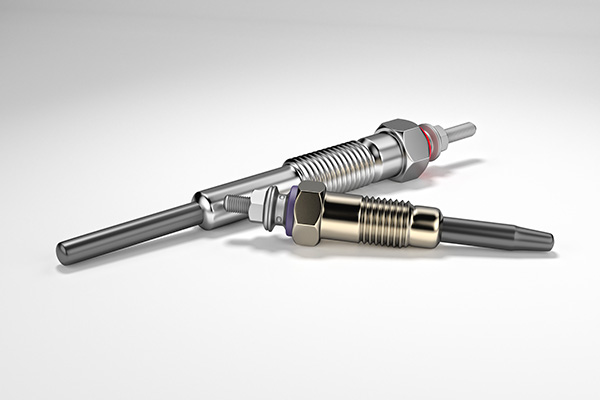
When your Mercedes-Benz engine begins to misfire, it’s not just an inconvenience—it’s a signal that something is wrong beneath the hood. Misfires can happen for several reasons, and while they’re not uncommon, they shouldn’t be ignored. If your car's engine stutters, struggles to accelerate, or you hear strange popping sounds, these could all be signs of a misfire. But what exactly causes a Mercedes-Benz engine to misfire, and how can you fix it?
What Is an Engine Misfire
Before we look at the causes, it’s important to understand what’s happening during a misfire. Simply put, a misfire occurs when one or more of the engine’s cylinders fail to ignite the air-fuel mixture properly. This causes an imbalance in the engine, leading to rough idling, poor fuel economy, loss of power, or, in severe cases, complete engine stalling. Misfires can happen intermittently or consistently, and they can vary in severity, but no matter how minor it seems, addressing it promptly is crucial to preventing further damage.
Common Causes of Mercedes-Benz Engine Misfires
Engine misfires in a Mercedes-Benz can be traced back to several possible issues. Here are some of the most common culprits:
1. Faulty Spark Plugs or Ignition Coils
The most frequent cause of an engine misfire is related to the spark plugs and ignition coils. These components are essential for the combustion process, as they ignite the air-fuel mixture inside the cylinders. Over time, spark plugs can wear out, and ignition coils can fail, leading to a misfire.
In Mercedes-Benz models, misfiring due to worn spark plugs is more common if they haven’t been replaced within the recommended service intervals. Faulty ignition coils can also cause irregular firing, leading to misfires in one or more cylinders. If you notice rough idling or poor acceleration, these components should be the first things to check.
2. Issues with the Fuel Injectors
Another possible reason for misfires is fuel injector problems. Each cylinder has its own injector that supplies the precise amount of fuel required for combustion. If an injector becomes clogged or fails, it can result in an imbalanced air-fuel mixture, which causes the cylinder to misfire.
Mercedes-Benz engines rely on precision, and any issue with fuel delivery can throw the entire process off. If your vehicle seems to be struggling with power or the misfires worsen under acceleration, it could be due to a fuel injector issue.
3. Air and Fuel Mixture Imbalance
Your engine relies on the perfect balance of air and fuel for optimal combustion. Any disruption to this ratio—whether due to a dirty air filter, a mass airflow sensor (MAF) malfunction, or a problem with the fuel system—can lead to a misfire. If the engine is running too rich (too much fuel) or too lean (too much air), the combustion process becomes inefficient, resulting in misfires.
A malfunctioning oxygen sensor or a vacuum leak can also contribute to an air-fuel imbalance. When the air-fuel mixture is off, your Mercedes-Benz engine may experience rough running, misfiring, or poor fuel efficiency.
4. Compression Loss
Another cause of engine misfires is compression loss. Each cylinder in your engine needs proper compression for combustion to occur. If there’s a problem with the piston rings, valves, or head gasket, the engine may lose compression in one or more cylinders, leading to a misfire.
Compression-related issues are typically more severe and may require a deeper inspection to identify. If your Mercedes-Benz engine misfires only when it's cold or under specific conditions, it could be a sign of a compression issue.
5. Faulty Engine Sensors
Modern Mercedes-Benz vehicles are equipped with multiple sensors that communicate with the car’s computer to ensure everything is running smoothly. If any of these engine sensors, like the crankshaft position sensor or camshaft sensor, fail or send incorrect signals, it can result in a misfire.
These sensors help the engine’s computer manage timing, fuel injection, and ignition. If they’re not working properly, your engine might fire at the wrong time, causing a misfire. This issue might also trigger a check engine light, giving you an early indication of the problem.
What Should You Do If Your Mercedes-Benz Is Misfiring?
If you’ve noticed that your Mercedes-Benz engine is misfiring, it’s important to get it checked out as soon as possible. Ignoring the problem can lead to bigger issues, such as damaged catalytic converters, increased emissions, or even severe engine damage over time.
Start by inspecting or replacing the spark plugs and ignition coils, as these are the most common causes. If that doesn’t resolve the problem, the next steps should include checking the fuel injectors and air-fuel mixture and ensuring all sensors are functioning properly.
How to Prevent Future Misfires
While some causes of engine misfires are unavoidable, regular maintenancecan help you prevent many of these issues. Here are a few tips to keep your Mercedes-Benz running smoothly:
Regularly replace spark plugs and ignition coils based on your vehicle’s recommended service intervals.
Keep an eye on the air filter and fuel system to ensure they’re clean and functioning properly.
Monitor engine sensors and take action if you see any warning lights or unusual engine behavior.
Address any warning signs immediately to avoid further damage. If your engine starts to misfire, don't wait—get it checked by a professional.
Has your Mercedes-Benz engine been acting up? It might be time for an inspection! Visit MBClinic for expert engine diagnostics and repairs. Our team will help you keep your vehicle in top shape so you can enjoy a smooth ride!